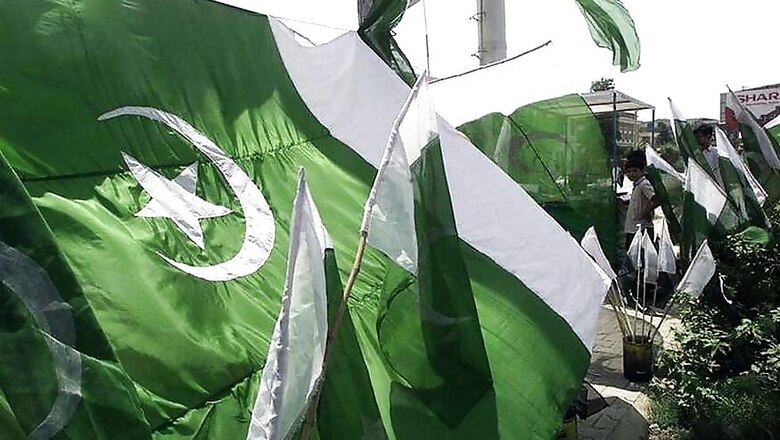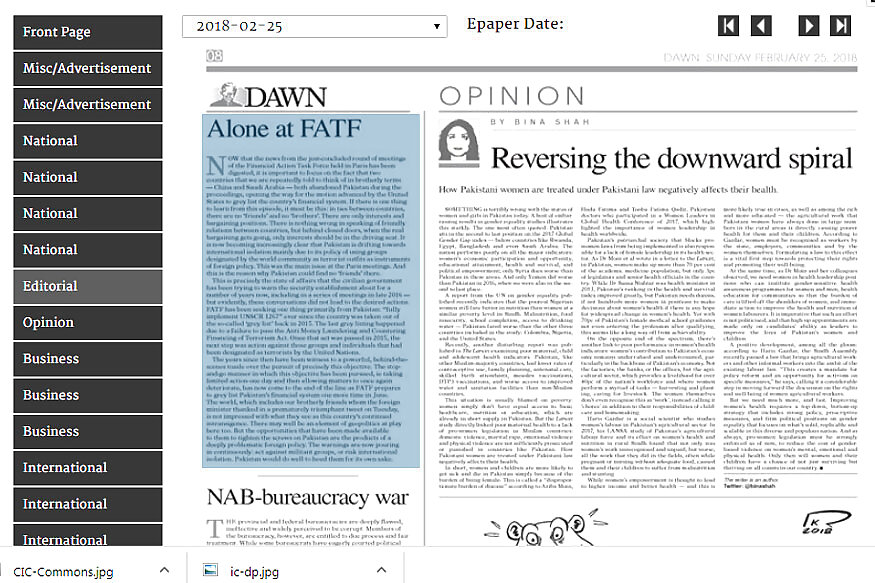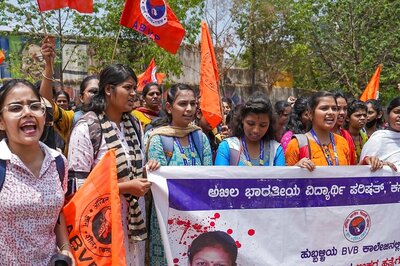
views
Islamabad: Pakistan is drifting towards international isolation mainly due to its policy of using groups designated by the global community as terrorist outfits as instruments of foreign policy, the media in Islamabad warned on Sunday, days after a global watchdog on terrorism financing reportedly placed Islamabad on its watch-list.
The world, which includes our brotherly friends (China and Saudi Arabia) whom the foreign minister (Khawaja Asif) thanked in a prematurely triumphant tweet on Tuesday, is not impressed with what they see as this countrys continued intransigence, the Dawn said in a stinging editorial, criticising the policies of the government, especially the powerful military.
Now that the news from the just-concluded round of meetings of the Financial Action Task Force (FATF) held in Paris has been digested, it is important to focus on the fact that both China and Saudi Arabia abandoned Pakistan during the proceedings, opening the way for the motion advanced by the United States to a grey list the countrys financial system, it said.
The FATF in its report released on Friday did not mention Pakistan's name, leading to confusion about the country's status.
It is now increasingly clear that Pakistan is drifting towards international isolation mainly due to its policy of using groups designated by the world community as terrorist outfits as instruments of foreign policy, the prominent newspaper commented.
This is precisely the state of affairs that the civilian government has been trying to warn the security establishment about for a number of years now, including in a series of meetings in late 2016 but evidently, these conversations did not lead to the desired actions, it noted.

The Dawn editorial that was published on Sunday.
The FATF has been asking Pakistan to fully implement UN Security Council Resolution 1267 ever since the country was taken out of the grey list back in 2015. Once that act was passed in 2015, the next step was action against those groups and individuals that had been designated as terrorists by the United Nations.
The warnings are now pouring in continuously to act against militant groups, or risk international isolation. Pakistan would do well to heed them for its own sake, it said.
Another newspaper, The News, commented that Pakistan needs to reflect seriously about the consequences of its inaction against terrorist finance. The failure to curb terrorism finance is something that the country accepts internally.
There have been constant pleas within the government apparatus to come up with measures to combat the free flow of terrorist finance. But these efforts remain beset by contradictions, it said.
Currently, the offending entity seems to be the free operation of Lashkar-e-Taiba and its charity wing JuD, it said.
The group (JuD) was able to launch a political party this year and has not faced action from the state akin to a serious clampdown. Cosmetic action has continued to be taken, which is why the international community remains unconvinced by the presidential ordinance putting Pakistans terrorist organisation list in compliance with the UN list and the recent seizing of LeT assets, the paper said.
The optics are not convincing. However, there is little evidence that Pakistan is doing worse that it was in 2015 when it was taken off the grey list, The News commented.
The Nation, another leading Pakistani newspaper, in an editorial said, This is a time to reflect upon the flawed policies which brought us to such a brink of panic.
The mainstreaming of terrorist and extremist factions, to the point that we tolerated their large participation in our election process, is what has put us in this situation today, it said.
It is time that Pakistan actively pushes against these liabilities that are causing us so much damage, it commented.
The actions Pakistan took this last month, such as promulgating an ordinance banning JuD chief Hafiz Saeed and his party, as a last-minute attempt to evade the FATF list, must be doubled down and implemented, it added.




















Comments
0 comment